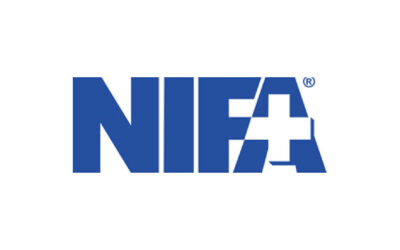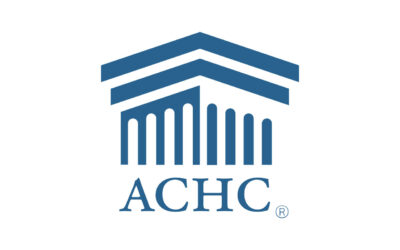The ultimate goal of any comprehensive quality program, whether in an ASC or hospital environment, is to demonstrate sustained evidence of performance improvement on an ongoing basis. Additionally, there are several other goals and objectives in such a program.
Benchmarking activities allow for the comparison of key performance quality measures from data collected and analyzed over a specific period of time. These quality measures must be compared both from an internal facility performance perspective (monthly, quarterly, yearly, etc.), as well as from an external performance perspective (compared with other similar organizations such as ASCs or hospitals), or with recognized best practices of national organizations or associations (ASC Association, American Hospital Association, ASC Quality Collaboration, National Healthcare Safety Network, Centers for Disease Control and Prevention, etc.).
1. What regulatory requirements exist for capturing data and sharing it?
From a regulatory perspective, all ASCs that are either state-licensed ASCs, Medicare-certified or accredited by a national accreditation organization such as the Accreditation Association for Ambulatory Health Care (AAAHC) must have a Boardapproved Quality Assessment/ Performance Improvement program. There are several requirements for such a program. It must be active, ongoing, comprehensive (involving all service areas). It must include a variety of quality aspects (also known as quality indicators and/or quality measures). It must be data-driven (data collection and analysis of which internal and external benchmarking is included). And it must be integrated with other quality activities such as Peer Review, Infection Control and Risk Management.
In accordance with CMS regulations, hospitals have been required to report inpatient data for many years. (The program was developed as a result of the Medicare Prescription Drug, Improvement and Modernization
Act of 2003.) The data is made available to consumers on the Hospital Compare website. The Hospital IQR (Inpatient Quality Reporting) Program is intended to equip consumers with quality of care information to help them make more informed decisions about healthcare options. It is also intended to encourage hospitals and clinicians to improve the quality of inpatient care provided to all patients.
The Hospital Outpatient Quality Reporting (OQR) Program is a quality data reporting program also implemented by CMS for outpatient hospital services. Under this program, hospitals report data using standardized measures of care to receive the full annual update to their Outpatient Prospective Payment System (OPPS) payment rate. The program is effective for payments that began in calendar year 2009. The Hospital OQR Program is modeled on the current quality data reporting program for inpatient services – the Hospital Inpatient Quality Reporting Program.
Lastly, in accordance with CMS – as stipulated in calendar year 2012 OPPS (Outpatient Prospective Payment System)/ASC Final Rule – ASCs must now follow an established process for participation in a quality reporting program. The establishment of quality measure reporting for this group was authorized under the Medicare Improvements and Extension Act of 2006 under Title I of the Tax Relief and Health Care Act of 2006, which became effective Oct. 1, 2012.
Involved ASCs must report the following five claims-based quality measures:
- Patient Burn
- Patient Fall
- Wrong Site, Side, Patient, Procedure, Implant
- Hospital Admission/Transfer
- Prophylactic IV Antibiotic Timing
The above measures have been adopted for the calendar year 2014 payment determination. In addition, two structural measures (surgical procedure volume and safe surgery checklist use) were added to the above list for initial reporting in calendar year 2013 (July 1 through August 15) for payments made in 2015. ASCs that do not meet program requirements for ASC Quality Reporting may receive a 2 percent reduction in their ASC annual payment update (APU). Any quality measure data submitted to CMS could be made public via web reporting.
2. How does benchmarking affect administrative, clinical and financial outcomes?
Benchmarking various types of quality indicators is a continuous measurement of a process or service compared to those of competitors, industry leaders, similar organizations or your own organization in order to implement improvement initiatives. From the information obtained, a participating facility should be able to readily identify strengths and weaknesses, which can be used to develop an action plan to help improve processes. The purpose of using information from external sources is to develop best practices and implement the same or similar processes to achieve better results.
3. Why is such data critical in terms of patient satisfaction?
The expectation of patients treated in the above types of healthcare settings remains extremely high, and rightly so. From a patient’s perspective, non-eventful experiences performed in a professional, customer-friendly and cost-effective manner should provide the utmost quality of care.
As mentioned previously, reported information from various healthcare facilities such as those listed above can equip consumers with quality of care information to help them make more informed decisions about healthcare options. Quality information made accessible to the public can also be a potential marketing tool to distinguish a particular facility among the competition.
It is of the utmost importance that all facilities participate in benchmarking activities so that they can continually assess their strengths and weaknesses in key areas of performance within their own organization and compared to others; identify opportunities for improving process/systems; and ultimately demonstrate a sustained level of performance improvement.
About the author
As Associate VP-Clinical, Quality and Compliance for health Inventure, Cindy King provides consultation for licensure, regulatory & accreditation compliance, oversight of risk management issues and facility operations from a clinical perspective. her professional nursing/management career spans 29 years with ambulatory surgery centers, including the development, launch and governance of several ASCs nationwide. She completed her nursing program at Miami Valley hospital along with Wright State university in Dayton, Ohio, and maintains certification as a Certified Professional in healthcare Quality (CPhQ) from the healthcare Quality Certification Board of the National Association for healthcare Quality. Cindy is also an Advanced Legal Nurse Consultant and has been a surveyor for the Accreditation Association for Ambulatory health Care (AAAHC) for the past 10 years.








